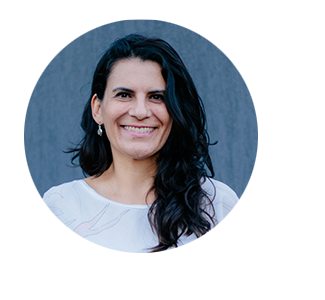

Three hands-on tips for collaborating with Global South think tanks
If you are from the Global North, your daily work reality will be very different from that of your peers in the Global South. To collaborate with think tanks from the Global South, you’ll need a nuanced understanding of the cultural, political, and economic hurdles they face. In a time of global challenges, international approaches can benefit greatly from diverse and local expertise. This is not just an act of inclusivity; it is key to creating feasible and impactful policy recommendations that resonate with decision-makers in the public and private sector both locally and globally. Working with over 70 think tanks from Global South countries, I have encountered obstacles and opportunities common to every setting. This article provides three hands-on tips from my experiences.
Tip 1: Building Trust and Balanced Partnerships
Start by reflecting on your expertise needs. Then, reach out to potential partners. If you are new to this kind of collaboration and lack contacts, I recommend tapping networks or organizations like Southern Voice, the Partnership for Economic Policy (PEP), or On Think Tanks (OTT).
From the beginning, build strong relationships by getting to know your partners beyond their research. Set aside time for icebreaker activities in each call, for example. This helps foster a collaborative and respectful environment and builds trust. If you are lucky, your meetings will be in person. But most likely you will communicate via e-mail and virtual calls. Working in the Global North, this might work fine, but for many Global South cultures it feels very anonymous. If they don’t trust and know you as a person, not just as a researcher colleague, joint work can become strenuous. Building a sense of community is vital. Avoid hierarchical approaches and value everyone's contribution, as past colonial power dynamics can still influence perceptions (more than you might think). Be mindful of this and strive for equitable partnerships.
Also, think beyond the research phase. Consider shared audiences and discuss how you will promote the project together. Be realistic about constraints like visa restrictions and tricky flight connections for Global South researchers and see if you can accommodate their needs or offer virtual alternatives. Ensure fairness in workload distribution, as well as in visibility. There’s nothing worse than a part of the team feeling like they did all the work and got none of the glory. Word of that travels fast in the community.
![]()
Build strong relationships by getting to know your partners beyond their research and ensure fairness in workload distribution, as well as in visibility.
Tip 2: Be Mindful of Cultural and Contextual Differences
When designing project timelines, collaborate with your counterparts to account for the different work rhythms in various regions. That includes holidays and time zone constraints. Don't wish everyone a Merry Christmas if they don't celebrate it, or a happy summer when most of the Global South is in winter. We don’t take a break in August just because most of the northern hemisphere does.
Also, recognize that English is spoken in various ways across the Global South. Be open to different linguistic styles and expressions. They might use different vocabulary and even sentence structures than what you are used to with British or US English. The same is valid if you are from Spain and are working with Latin Americans. The use of the language is diverse. Consider this during the editing process and have an honest conversation about it before.
The concept of time and deadlines can also vary, depending on cultural background. I once received a long-overdue article from an Asian colleague with a 3-month delay and no explanation. While this is an extreme case, it is not uncommon in the Global South. Be aware of this possibility and get creative about it. Over the years I developed my own ways of circumventing it. Different approaches to time don't mean lower quality work. Delays can also be due to circumstances beyond everyone’s control, which leads me to tip 3.
![]()
The use of the language is diverse. Consider this during the editing process.
Tip 3: Adapting to Political and Economic Constraints
Navigating unpredictable events that disrupt life and work is the most challenging aspect of collaboration in the Global South: political instability, unexpected audits, economic hardships, infrastructure issues – or even elections. In many places, the entire period around elections is often marked by anxiety, “panic shopping,” and sometimes real fears for personal safety. As I write this, my own country, Bolivia, is going through its third week of street blockades and food and fuel shortages, due to rifts within the government party prior to elections. This means that whenever things ease a bit, stocking up takes priority over meetings and desk work. Hardships like these, however, also mean we have a real understanding of development policies needed on the ground, literally because we are living it.
Increasingly, Global South countries also face power outages. These can interrupt your colleagues’ work or force them to relocate constantly around town to areas with reliable electricity. This happens in many African countries and lately also in Latin America. While locals are skilled at overcoming these obstacles, it is still stressful. The worry of these uncontrollable circumstances can be more significant than a research paper deadline. In these moments, well-intentioned advice from someone in a country with stable infrastructure (and government) isn't helpful. What is supportive is patience, empathy, flexibility, and genuine interest in what's happening in the person’s country. Very often Global South researchers don’t communicate these things due to fear of being seen as unprofessional and unreliable.
That is why, as mentioned in tip 1, it is important to set aside space at the beginning of meetings to discuss these issues, also for your timeline. Flexibility and adaptability are words that Northern partners need to incorporate into their collaboration with Global South partners. In all my time at Southern Voice, we (almost) never missed a deadline. But there was always at least one person in our teams going through one of the above-mentioned circumstances. The mental health toll of functioning in such a context is tough, even more so if the other side shows no understanding.
![]()
Be aware that your project partners may be dealing with local political and economic constraints that create stress.
I hope you won’t shy away from establishing mutually beneficial collaborations and strengthening your organization's and your Global South counterpart's global reach. Keep the big picture and the ultimate goal in mind: to improve people's lives on the ground with your joint research. Approaching these partnerships with empathy, flexibility, and a genuine desire to learn from diverse perspectives is not only the key to success; it is indispensable.
Gabriela Keseberg Dávalos
Policy Advisor,
Independent

Gabriela Keseberg Dávalos is an independent policy advisor focusing on international relations, in particular the intersection between the Global South and the European Union. Previous roles include Director of Global Public Affairs of Southern Voice and Senior Foreign Policy Advisor to the Vice-President of the European Parliament for Human Rights and Democracy.